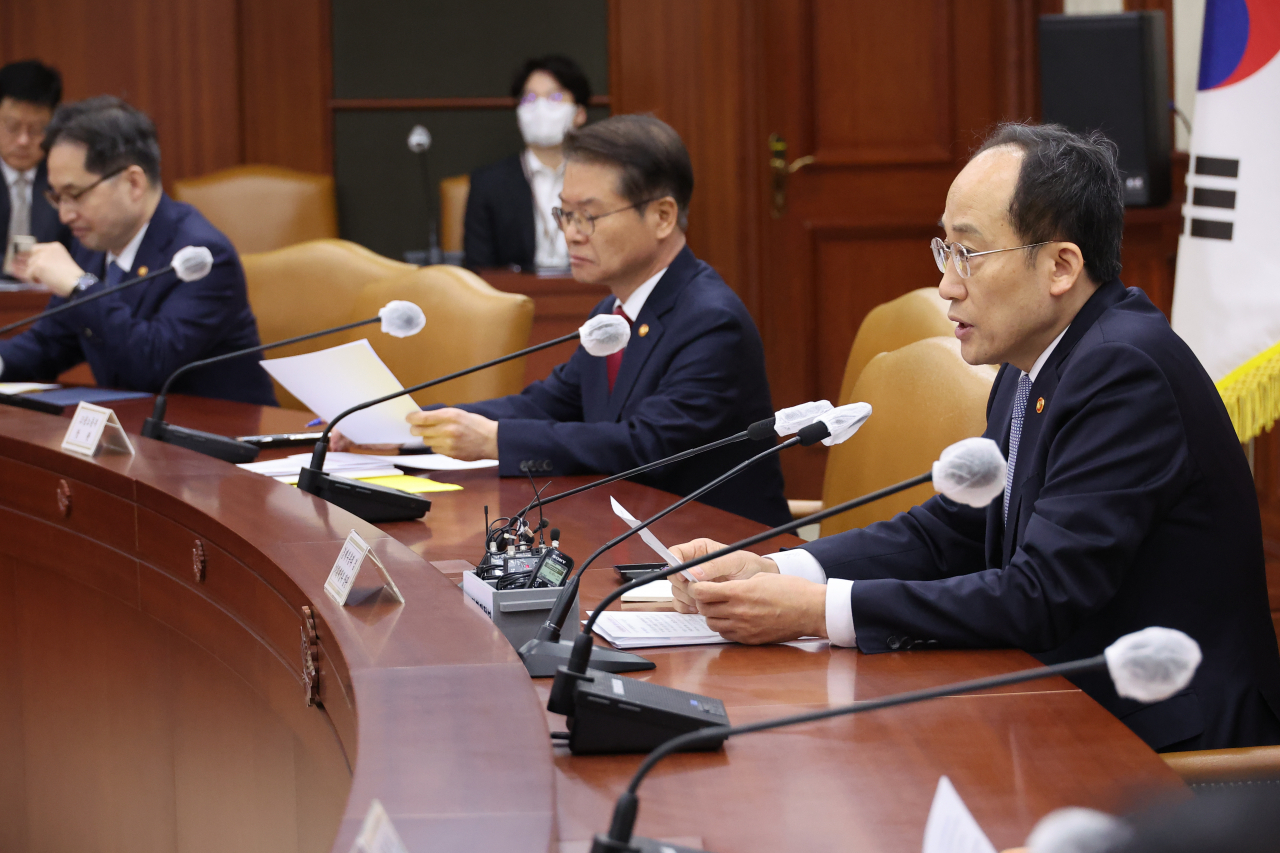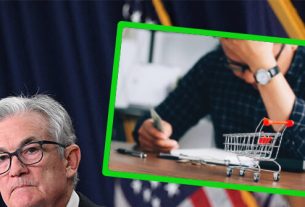|
Finance Minister Choo Kyung-ho speaks during an emergency meeting of economy-related ministers at the government complex in Seoul on Monday. (Yonhap) |
South Korea’s efforts to combat high inflation are showing signs of progress as consumer prices marked their smallest on-year increase in February in nearly 10 months, according to Statistics Korea on Monday.
The consumer price index, a key indication of inflation, rose by 4.8 percent on-year last month, marking a 0.4 percent drop from 5.2 percent in January. It is the first time since April 2022 that the figure has fallen into the 4 percent range.
“Barring any unexpected external shocks, the slowdown of consumer prices will be clearer as we move forward,” Finance Minister Choo Kyung-ho said at a meeting held at the Government Complex Seoul.
Slowing inflation has brought relief to consumers yet concerns remain amid price hikes in public utility charges.
“The government will do its best to continue the slowdown as prices are still high, which is a burden for the people,” Choo said. “We will maintain the stance to freeze public utility charges during the first half of the year to minimize the burden.”
The price of utilities, including electricity, gas and water, increased by 28.4 percent on-year in February, hitting a record high since data was compiled in 2010.
It showed a slight increase from the 28.3 percent growth tallied in January as some local government bodies raised the charges for water utilities.
The fall of the CPI in February stems from the drop in prices for oil and livestock products. Oil prices fell by 1.1 percent while livestock product prices fell by 2 percent.
The core CPI, excluding volatile food and oil prices, went up by 4 percent on-year, less than the 4.1 percent increase from a month before. The CPI for daily necessities rose by 5.5 percent.
Choo also asked for cooperation from related industries to bring down the prices of food.
“Related industries should absorb the upward pressure for prices by cutting production costs through increasing efficiency as the government is doing its best to stabilize major food prices by cutting the duties for raw food ingredients,” he said.
Statistics Korea shared concerns on volatility following China’s easing of COVID-19 restrictions.
“Inflation is slowing down since the latter half of last year, with the rates for personal services falling slightly,” an official from Statistics Korea said. “However, volatility for consumer prices remains high with international prices for raw materials increasing following China’s reopening.”
Although authorities assessed that inflation had passed its peak when the CPI hit a 6.3 percent high in July, it still remains well above the 2 percent target set by the Bank of Korea.
The figure came down to the 5 percent range in November and December but slightly climbed to 5.2 percent in January due to the price hikes in public utility charges.
The Bank of Korea projected the consumer price index will continue to drop this month.
“The increase in consumer prices may fall significantly in March from the base effects of the hikes in international oil prices shown last year,” BOK Deputy Governor Lee Hwan-seok said at a separate meeting, referring to the 13.8 percent rise in oil prices in March 2022, following Russia’s invasion of Ukraine.
The hike in the oil price pulled up the overall consumer prices to 4.1 percent at the time.
“But consumer prices will continue to show an upward trend, surpassing the 2 percent target range,” Lee said.
By Im Eun-byel ([email protected])



